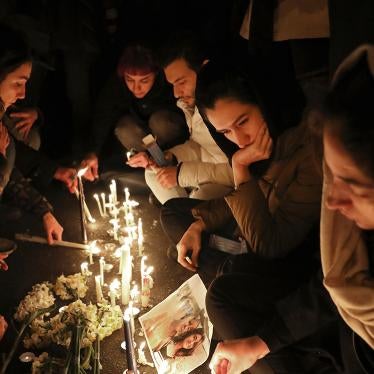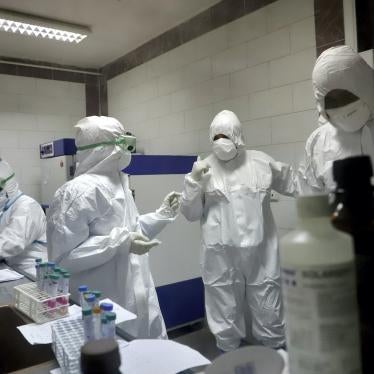(Beirut) – Iranian authorities should transparently investigate alleged government security forces’ use of excessive force in Sistan and Baluchistan province on February 22, 2021, Human Rights Watch said today. At least 10 Baluchi people were killed in the Saravan border area near Pakistan, local activists said.
The Baluchi Activists Campaign, a website reporting on human rights violations in the area, reported that on February 22, Iran’s Islamic Revolutionary Guard Corps blocked the road that residents use to transport fuel to Pakistan at the Eskan border area in the town of Saravan, in Sistan and Baluchistan province. The security forces then apparently opened fire at those attempting to open the road, killing at least 10 people and injuring 5.
“The Iranian authorities should urgently conduct a transparent and impartial investigation into the shootings at the Saravan border,” said Tara Sepehri Far, Iran researcher at Human Rights Watch. “The authorities should hold those responsible for wrongdoing to account, appropriately compensate victims, and ensure that border guards are taking the utmost precautions to respect the right to life and other human rights.”
On February 25, several mobile network operators shut down internet access in several parts of the province, including Zahedan and Saravan, a digital rights researcher reported. According to official statistics, more than 95 percent of internet users in the province are connected through mobile service. Several activists had said that since the February 22 incident, internet access in the area has been disrupted.
On February 23, Mohamad Hadi Marashi, the Sistan and Baluchistan deputy governor for security, told reporters that the shooting started from the Pakistan side of the border and said that two people had died. On February 25, the Islamic Republic News Agency (IRNA) reported that Ali Ahmad Mouhebati, the governor of Sistan and Baluchistan, told representatives of tribal leaders in the area that three people were killed in the incident, two of them in Pakistani territory.
The Human Rights Activists News Agency (HRANA) reported that on the same day, violence broke out when protesters gathered in front of the governor’s office in Saravan. The police used teargas and shot bullets to disperse the crowd, HRANA said. It is not clear if any protester was injured during the incident.
The Iranian government should abide by the United Nations Basic Principles on the Use of Force and Firearms by Law Enforcement Officials , Human Rights Watch said. The Basic Principles state that security forces shall “apply non-violent means before resorting to the use of force and firearms,” and that whenever the use of force is unavoidable, law enforcement officials should exercise restraint in such use and act in proportion to the seriousness of the offense and the legitimate objective to be achieved. Security forces should also minimize damage and injury, and respect and preserve human life.
The principles say that “intentional lethal use of firearms may only be made when strictly unavoidable in order to protect life.” And they provide that, “in cases of death and serious injury or other grave consequences, a detailed report shall be sent promptly to the competent authorities.”
Sistan and Baluchistan province has a high rate of poverty and lacks access to economic and social infrastructure. Similar to the western provinces of Western Azerbaijan and Kurdistan, its lack of economic opportunities has led many residents to engage in unlawful cross-border commerce with Pakistan and Iraq.
Over the past three years, Iranian authorities have increasingly used large-scale internet shutdowns during periods of unrest and protests to disrupt access to information for local communities and international observers. Internet shutdowns violate multiple rights, including the rights to freedom of expression and access to information, and the rights to peaceful assembly and association.
Under international human rights law, Iran has an obligation to ensure that internet-based restrictions are provided by law and are a necessary and proportionate response to a specific security concern. Officials should not use broad, indiscriminate shutdowns to curtail the flow of information or to harm people’s ability to freely assemble and express political views.
“The international community should press Iranian authorities to immediately lift all restrictions to internet access and act to end such shutdowns in the future,” Sepehri Far said.









